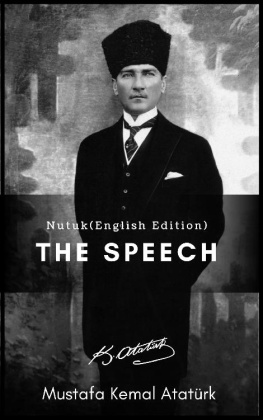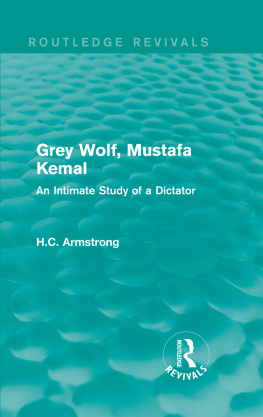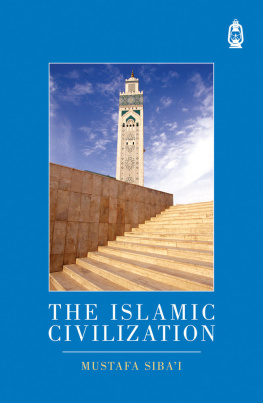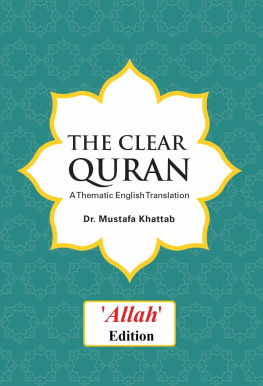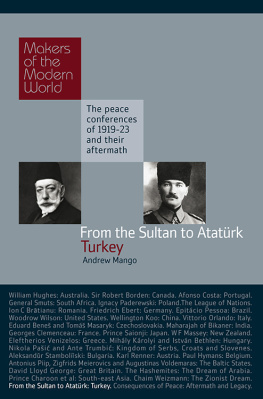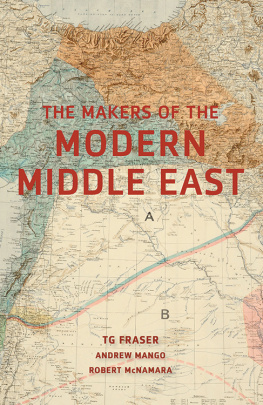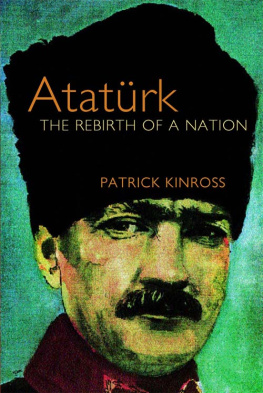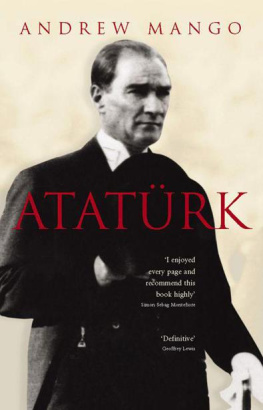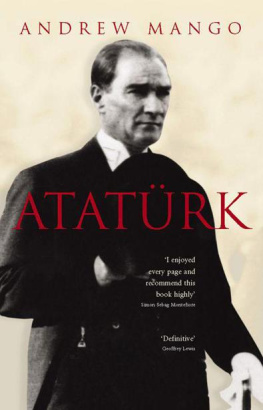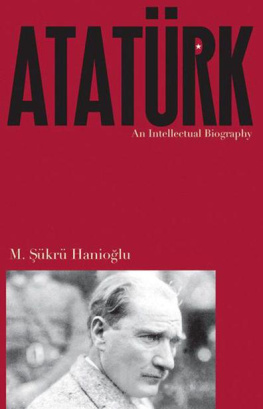MUSTAFA KEMAL ATATÜRK - The Speech (Nutuk) English Edition
Here you can read online MUSTAFA KEMAL ATATÜRK - The Speech (Nutuk) English Edition full text of the book (entire story) in english for free. Download pdf and epub, get meaning, cover and reviews about this ebook. year: 2020, publisher: Ataturk Research Center CT, genre: Religion. Description of the work, (preface) as well as reviews are available. Best literature library LitArk.com created for fans of good reading and offers a wide selection of genres:
Romance novel
Science fiction
Adventure
Detective
Science
History
Home and family
Prose
Art
Politics
Computer
Non-fiction
Religion
Business
Children
Humor
Choose a favorite category and find really read worthwhile books. Enjoy immersion in the world of imagination, feel the emotions of the characters or learn something new for yourself, make an fascinating discovery.
- Book:The Speech (Nutuk) English Edition
- Author:
- Publisher:Ataturk Research Center CT
- Genre:
- Year:2020
- Rating:3 / 5
- Favourites:Add to favourites
- Your mark:
- 60
- 1
- 2
- 3
- 4
- 5
The Speech (Nutuk) English Edition: summary, description and annotation
We offer to read an annotation, description, summary or preface (depends on what the author of the book "The Speech (Nutuk) English Edition" wrote himself). If you haven't found the necessary information about the book — write in the comments, we will try to find it.
The Speech (Nutuk) English Edition — read online for free the complete book (whole text) full work
Below is the text of the book, divided by pages. System saving the place of the last page read, allows you to conveniently read the book "The Speech (Nutuk) English Edition" online for free, without having to search again every time where you left off. Put a bookmark, and you can go to the page where you finished reading at any time.
Font size:
Interval:
Bookmark:
The Speech
BY
MUSTAFA KEMAL
ATATRK
Copyright
Ataturk Research Center CT
http://www.ataturkresearchcenter.org
The Republic of Turkey was founded in 1923 as a modern nationstate. The years preceding this, 1919 to 1922, are seen by the Turks as the years of their struggle for independence (mill mcadele), led by Mustafa Kemal (18811938), later known as Atatrk and the first president of the republic. On October 1520, 1927, Mustafa Kemal presented his famous sixday speech (Nutuk) at the General Congress of the Republican Party (Cumhuriyet Halk Partisi), giving his own account of the War of Independence.
Associate Professor Nese Ozden and Dr Richard Dietrich, by using the original text of The Speech written in Ottaman Turkish to control and correct the 1929 English translation of The Great Speech published by K.F. Kohler in the German city of Leipzig. Personal and Place names in the text have been rendered in their modem Turkish forms,and the English of the 1929 version has also been updated in many places in the interest of clarity.
Mustafa Kemal Atatrk (1881 10 November 1938) was a Turkish army officer, revolutionary, and the first President of Turkey. He is credited with being the founder of the Republic of Turkey.
Gentlemen,
I landed at Samsun on 19 May 1919. This was the situation at that time:
The group of Powers which included the Ottoman Government had been defeated in the World War. The Ottoman Army had been crushed on every front. An armistice had been signed under severe conditions. The prolongation of the Great War had left the people exhausted and impoverished. Those who had driven the people and the country into the World War had fled and now cared for nothing but their own safety. Vahdettin, the degenerate occupant of the throne and the Caliphate, was seeking for some despicable way to save his person and his throne, the only objects of his anxiety. The Cabinet, of which Damat Ferit Paa was the head, was weak and lacked dignity and courage. It was subservient to the will of the Sultan alone and agreed to every proposal that could protect its members and their sovereign.
The Army had been deprived of their arms and ammunition, and this state of affairs continued.
The Entente Powers did not consider it necessary to respect the terms of the armistice. On various pretexts, their battleships and troops remained stanbul. The Vilayet of Adana was occupied by the French; Urfa, Mara, Antep, by the English. In Antalya and Konya were the Italians, while English troops were in Merzifon and Samsun. Foreign officers and officials and their special agents were very active everywhere. At last, on 15 May, that is, four days before the following account of events begins, the Greek Army, with the consent of the Entente Powers, landed at zmir.
Christian elements were also at work all over the country, either openly or in secret, trying to realise their own particular ambitions and thereby hasten the breakdown of the State.
Certain information and authentic documents that fell into our hands later on prove that the Greek organisation "Mavri Mira" (Document I), established by the patriarchate in stanbul, was forming bands, organising meetings and making propaganda in the vilayets. The Greek Red Cross and the official Emigrants Commission supported the work of the "Mavri Mira." The formation of Boy Scouts in the Greek schools directed by the "Mavri Mira" were reiforced by the admission even of young men over twenty years of age.
The Armenian Patriarch, Zaven Efendi, also worked in connection with the "Mavri Mira." The preparations made by the Armenians progressed alongside those made by the Greeks.
A society called the "Pontus, (at Trabzon, Samsun and other places along the whole of the Black Sea coast, having their headquarters in stanbul,) worked openly and successfully (Document 2).
On account of the appalling seriousness of the situation which was apparent everywhere and particularly in all the vilayets, certain prominent personalities had begun, each on his own account, to discover some way to improve the situation. This resulted in new organisations being started. Thus, for instance, there were unions or societies at Edime and the surrounding districts called "Trakya Paaeli." In the east (Document 3), in Erzurum and Elaz (Document 4), the "Union for Defence of the National Rights of the Eastern Provinces" had been formed, also with their headquarters in stanbul. Again, in Trabzon there was a society called the "Defence of Rights" and in stanbul a "League for the Separation of Trabzon and its District." Through the efforts of the members of this league (Documents 5 and 6), sub-committees had been established at Of and in the district of Lazistan.
Some of the young patriots in zmir, who since 13 May bad noticed clear indications of the approaching occupation of the town, had held meetings about the distressing state of affairs during the night of the 14th, and in principle had agreed to oppose the occupation by the Greeks which at that time was considered to be practically an accomplished fact, designed to end in annexation, and resisted it on the principle of "no annexation." During the same night, those of the inhabitants who were able to meet at the Jewish cemetery in zmir drew up a protest and broadcast it. But, as the Greek troops actually landed on the following morning, this attempt failed to achieve the desired result.
I would like to give you a short account of the object and political aims of these organisations.
I had already had a conversation in stanbul with some of the leaders of the "Trakya Paaeli" Society. They considered that the breakdown of the Ottoman State was extremely probable. In the face of the threatened danger of the dismemberment of their country, their first thought was to save Eastern Thrace (Trakya) and later on, if possible, to form a Turco-Muslim community that would include Western Thrace. The only way by which they thought they could realise this aim was to put their trust in England or, if this was not possible, in France. With this object they tried to get in touch with certain political figures from foreign countries. It was believed that their intention was to establish a Thracian Republic.
The object of the "Union for Defence of the National Rights of the Eastern Provinces", on the other hand (Art. 2 of their regulations), was to use all lawful means to ensure the free exercise and development of their religious and political rights for all elements inhabiting these provinces; to defend, if it should become necessary, the historical and national rights of the Muslim population of these provinces; to institute an impartial inquiry for the purpose of discovering the motives, the instigators and agitators implicated in the extortions and atrocities committed in the Eastern Provinces, so that the guilty ones might be punished without delay; to do their utmost to remove the misunderstandings that existed between the different elements in the country, and to restore the good relations that had formerly existed between them; and, finally, to appeal to the Government to alleviate as far as it lay in their power the misery resulting from the war.
Acting on these principles that emanated from the Central Committee in stanbul, the Erzurum Branch decided, in defence of the rights of the Turks, to inform the civilised world by means of convincing documents that since the deportation the people had taken no part whatever in the atrocities. Further, that the property of Armenians had been protected up to the time when the country was invaded by the Russians. On the other hand, the Muslims had been compelled to suffer from the cruellest acts of violence and that some Armenians who had been saved from deportation had, in disobedience of orders, attacked their own protectors. The Branch were doing their very best to resist any attempt to annex the Eastern Provinces. (Proclamation by the Erzurum Branch.)
Next pageFont size:
Interval:
Bookmark:
Similar books «The Speech (Nutuk) English Edition»
Look at similar books to The Speech (Nutuk) English Edition. We have selected literature similar in name and meaning in the hope of providing readers with more options to find new, interesting, not yet read works.
Discussion, reviews of the book The Speech (Nutuk) English Edition and just readers' own opinions. Leave your comments, write what you think about the work, its meaning or the main characters. Specify what exactly you liked and what you didn't like, and why you think so.

